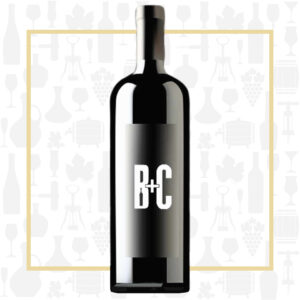Cellar Profile
This family-owned, family-run wine business is located approximately 70km southeast of Cape Town. The property has been owned by the Cluver Family – recognized as pioneers of wine in the area – since 1896. The focus here is on producing elegant wines that are expressive of the terroir. The cool Elgin Valley provides the ideal conditions for world-class Chardonnay and Pinot Noir. The wine business forms part of larger holistic farming business called ‘De Rust Estate’. In addition to the vineyards and cellar, there are apple and pear orchards, a Hereford stud and eco-tourism activities, including amphitheatre concerts on the farm. This 2000+ hectare estate forms part of the Kogelberg Biosphere, a UNESCO world heritage site. Half of the estate has been set aside for conservation into perpetuity.
Region
Elgin is the coolest growing region in South Africa, with temperatures rarely rising above 30°C during the growing season. With only 800 ha. under vine, it is also one of the smallest and least planted, as the rocky terrain, cool temperatures and low rainfall make growing grapes a challenging endeavour. Sitting amongst the Hottentot-Holland mountain range, the soils are a mixture of sandstone, decomposed shale, gravel and clay. Due to the precipitous diurnal temperature drops, viticulturists have eschewed the traditional red Bordeaux varieties favoured throughout most of South Africa, planting instead delicate Pinot Noir and altitude-loving Syrah. The most widely-planted white is Sauvignon Blanc, but the future of the region lies in Chardonnay, with world class examples being crafted. Riesling plantings are increasing and showing tremendous promise. Elgin wines tend to be high in acidity, with evolved flavours, as the long hang times allow full phenol development.
Vineyard
The De Rust Estate vineyards of Paul Cluver Family Wines sit on an inland mountain plateau, nestled in the UNESCO Koelberg Biosphere Preserve. Rising between 400-660 masl, they are a mix of the famed Bokkeveld Shale (sandstone rich with invertebrate fossils, clay and loam) and Fericrete gravel (rich in iron oxides). Subject to early morning mists, cool evenings, low rainfall and long sunlight hours, yields are small but high in quality. The vineyards are farmed sustainably, without the use of pesticides and with as little human footprint as possible. The Estate Riesling comes primarily from 33 year-old vines in fericrete, with a small amount coming from the shale in the rest of the vineyard.
Varieties
One of the wine world’s great white grapes, Riesling is best grown in cooler climates where it thrives from a long, slow growing season that develops its intense aromatics and renowned acidity. It is home in Germany but is also grown successfully throughout the wine world, notably in the Alsace region of France, cooler areas in Australia and South Africa and, of course, here in Ontario. Styles vary according to site and producer – from sweet and fruity to bone-dry and austere and everything in between.
Winemaking
In addition to vineyard sorting, a second stage of bunch and berry sorting occurs at the cellar to eliminate all traces of rot. Limited skin contact prior to fermentation. Pressing is always gentle. Only free run juice is fermented using a selected yeast culture.
Tasting Notes
The nose shows fresh green apple, apple blossom, beeswax and fynbos honey notes. The palate is crisp and clean – lemon sorbet-like. There is a great interplay between the naturally retained residual sugar and the acidity. Generally regarded as restrained, it displays typical Riesling ‘nervousness’. The mineral core, which is linked to the shale rich soils in which the vines grow, astounds. It is the reason for the wine structure and the lingering after taste. A perfect, refreshing hot weather wine!

 info@buyersandcellars.ca
www.buyersandcellars.ca
info@buyersandcellars.ca
www.buyersandcellars.ca